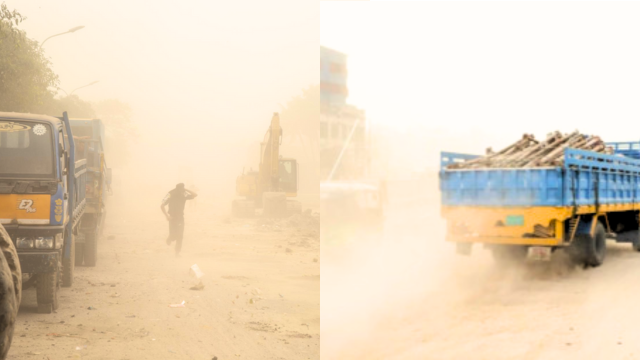The air quality in Dhaka this morning was categorized as 'unhealthy for sensitive groups,' with an Air Quality Index (AQI) score of 106 at 10:19 am. Dhaka ranked 11th on the list of cities worldwide with the worst air quality, with Pakistan's Lahore, India’s Delhi, and Nepal’s Kathmandu occupying the top three spots with AQI scores of 214, 175, and 170, respectively.
When the AQI value for particle pollution falls between 101 and 150, air quality is considered 'unhealthy for sensitive groups.' Between 150 and 200, it is considered 'unhealthy,' while readings of 201 to 300 are labeled 'very unhealthy,' and a score of 301 or higher is deemed 'hazardous,' posing significant health risks to residents.
The AQI serves as an index for reporting daily air quality, informing people about how clean or polluted the air in a particular city is and what health effects might be a concern for them. In Bangladesh, the AQI is based on five pollutants: particulate matter (PM10 and PM2.5), NO2, CO, SO2, and ozone.
Dhaka has been facing air pollution issues for an extended period, with air quality typically deteriorating during the winter months and improving during the monsoon season. According to the World Health Organization (WHO), air pollution causes an estimated seven million deaths worldwide each year, primarily due to increased mortality from stroke, heart disease, chronic obstructive pulmonary disease, lung cancer, and acute respiratory infections.































Comment: